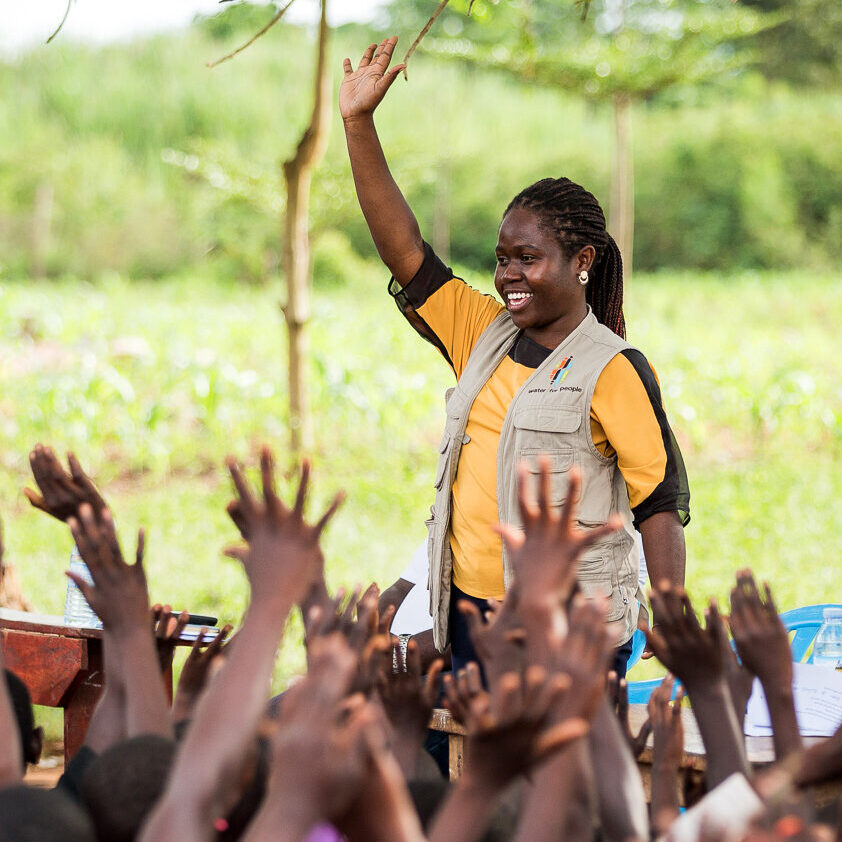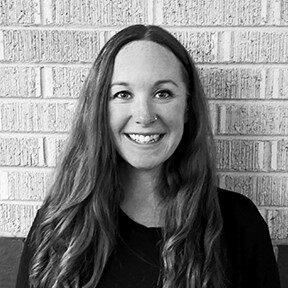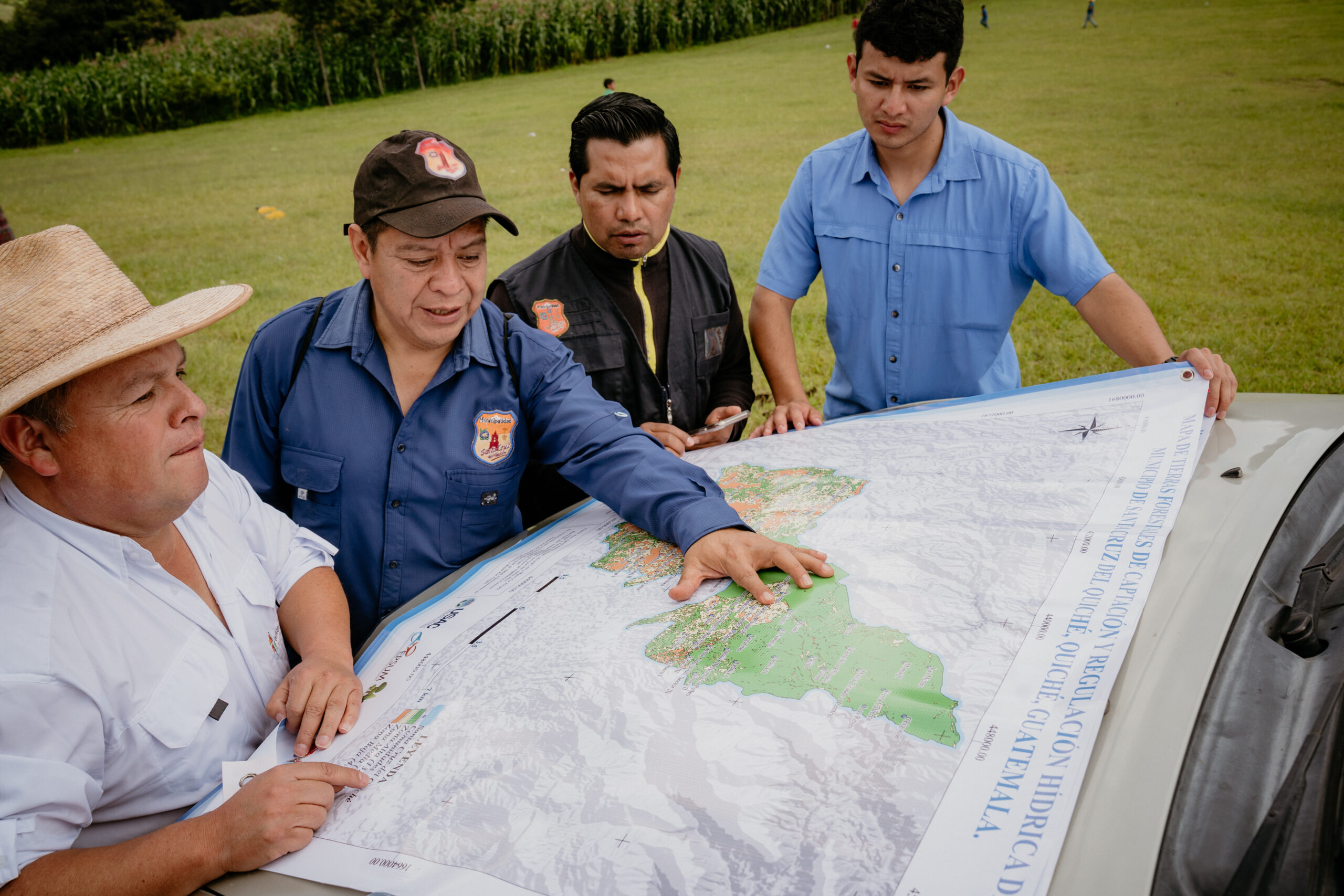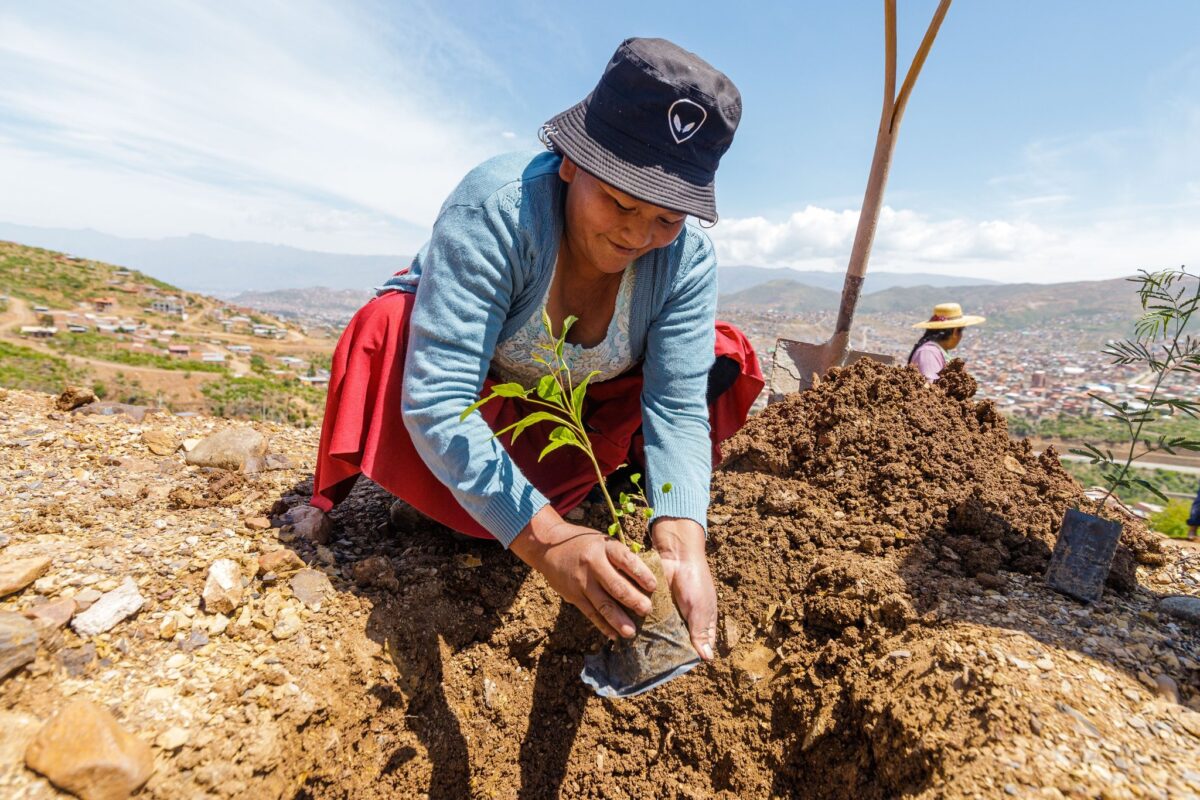Menstruation Matters
500 million women and girls worldwide don’t have what they need to manage their periods safely, hygienically, and without shame. That's millions of people unable to reach their full potential – but it doesn't need to be that way.
The Work in Action
Through partnerships with local communities and schools, Water For People teams are creating a more period-friendly world.
In schools, Water For People ensures bathrooms have changing rooms accessible to all students who need to manage their periods discretely, with dignity, and hygienically.
This work is always paired with education – talking about taboos in communities, teaching how to make reusable pads, and clubs and game-based learning about periods for students.

We asked our team:
What does a period-friendly world look like?



Climate Change Impacts
Climate change affects water and sanitation access for people through more devastating weather events including floods, droughts, storms, and landslides.
From too much, too little, or too polluted water, more people are experiencing crises, specifically the populations least responsible for climate change.
We partner with communities and governments to ensure water sources are protected, infrastructure can handle more extreme weather events, and funds are set aside for ongoing operation and maintenance.


Nature Based Solutions
The water cycle intersects with trees and forestation.
- Trees help improve water quality by slowing and filtering rainwater.
- Trees prevent soil erosion and reduce flood damage.
- Trees act as water reservoirs by taking in water from the soil and releasing it through their leaves. The added moisture in the air results in cloud formation, which leads to rainfall and the continuation of the water cycle.
Water For People is leading strategic, native tree planting to promote strong, sustainable, resilient environments so that water sources are protected and access can continue into the future.
The People Most Affected
More people are experiencing the negative effects of climate change, specifically the populations least responsible for causing it.
Additionally, climate change – and how it affects water supply and sanitation issues – has a greater impact on girls and women than on men. When you’re already the one walking miles to collect water or use a bathroom, drought or flooding complicates that task even further.
When it comes to natural disasters, increasing in frequency and intensity due to climate change, women, children, people experiencing poverty, older people, and people with disabilities are the most impacted. And especially dangerous for women and girls is the increase in gender-based violence after natural disasters.
Water For People includes women in decision-making within their communities and empowers them to lead the solutions in our water, sanitation, hygiene, and environmental work.
Learn More about the Issue
Global report reveals major gaps in menstrual health and hygiene in schools
NEW YORK, GENEVA, 28 May 2024 - Around the world, menstrual health and hygiene needs are being overlooked due to limited access to information, education, products and services, as well as inadequate facilities and inequalities.
Teenagers, their mums and grandmothers around the world talk about periods
Women from three generations share their intimate experiences of managing menstruation through the years.
Period Poverty - why millions of girls and women cannot afford their periods | UN Women - Headquarters
Millions of women and girls worldwide still cannot afford menstrual products or access water and sanitation facilities to manage their menstrual health and hygiene. Periods make them miss school, work, and negatively impact their health, but it does not have to be that way. Find out what is period poverty and who is affected.
Take Action
Donate today and support a period-friendly world. You can help ensure a generation of girls grows up never knowing what it was like not to be able to manage their periods hygienically and with dignity.
